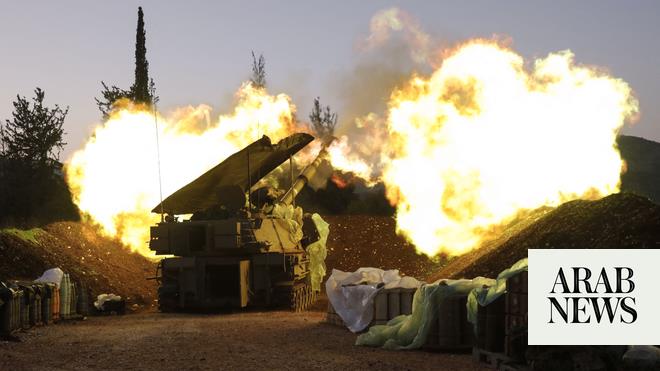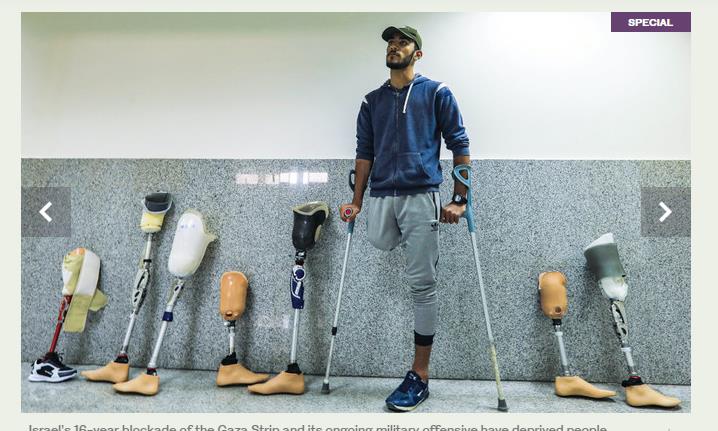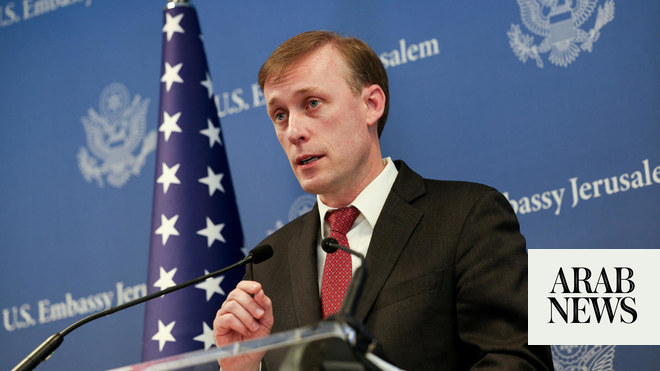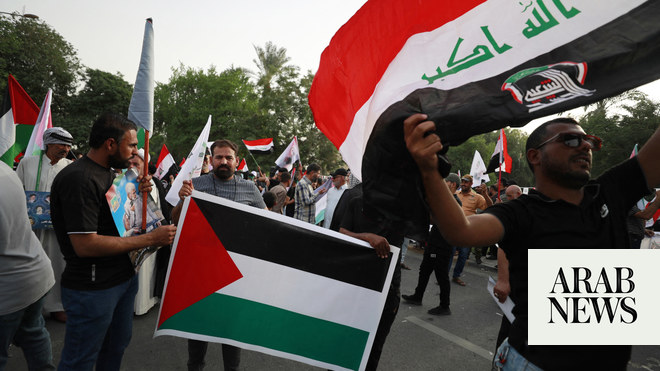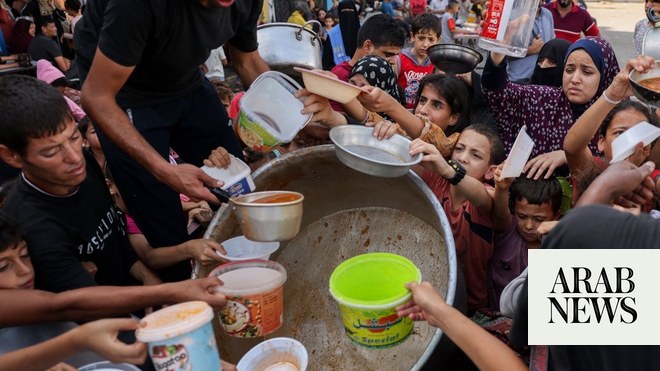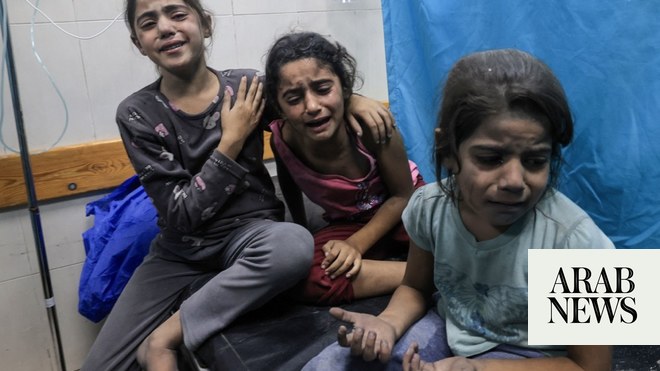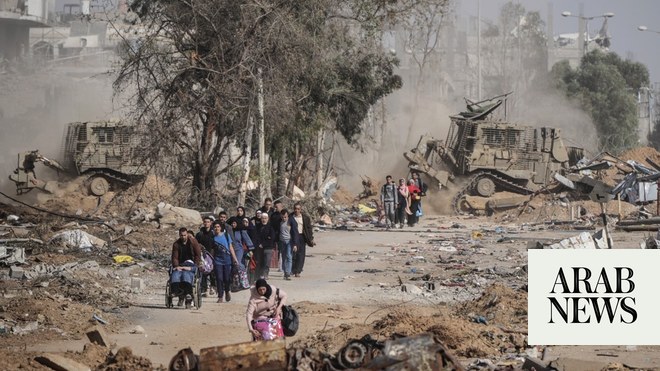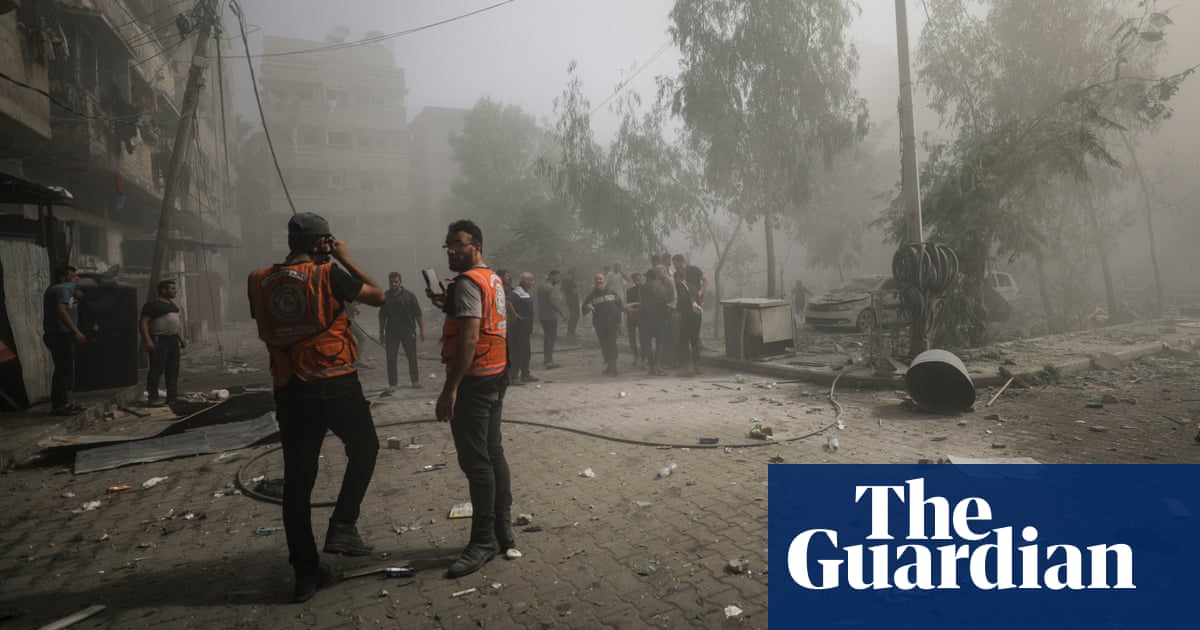
The blockaded Gaza Strip has been hit by one of the deadliest nights of Israeli bombing so far in the war against the Palestinian militant group Hamas, as two more hostages were freed amid reports that talks to secure the release of dozens of others were under way.
At least 400 Palestinians were killed in Gaza in the last 24 hours, according to the Hamas-run health ministry, and 70 were killed overnight on Sunday in bombardments of the densely populated Jabalia refugee camp and streets close to two hospitals in Gaza City.
Entire residential blocks across the strip have now been levelled, including in areas where Palestinians had been told by the Israel Defence Forces (IDF) to seek refuge. Approximately half the strip’s housing stock, and much of the coastal exclave, is now covered in grey rubble dust.
Late on Monday, Hamas said it had released two elderly Israeli women – Yokheved Lifshitz and Nurit Yitzhak, who also goes by the name Nurit Cooper – for humanitarian reasons in response to mediation by Qatar and Egypt.
Meanwhile, Israeli outlets reported that the US and Qatar were trying to broker a deal in which 50 people held by Hamas and other groups in Gaza of foreign or dual nationality would be released.
On Sunday it emerged the US had pressed Israel to delay its expected ground assault on Gaza to allow time for the release of more hostages believed to be held in the exclave, and the delivery of more aid to the besieged territory.
The Maariv newspaper said the Israeli prime minister, Benjamin Netanyahu, and his generals were at odds over when to launch an expected ground invasion.
Quoting unnamed senior Israeli officials, the daily said the Israeli leader is delaying putting boots on the ground while there is still a possibility of returning the captives, and that the “initial phrase” of the Israeli offensive – airstrikes – is “not yet exhausted”.
Netanyahu’s office was forced to put out a statement on Monday night denying the reports of friction, saying: “The prime minister, the defence minister and the IDF chief of staff are working in close and full cooperation … there is total and mutual trust.”
The UN’s rights chief, Volker Türk, called for an immediate ceasefire and the “prompt and effective” delivery of humanitarian aid to the population of Gaza.
“This violence will never end unless leaders stand up and take the brave and humane choices that are required by fundamental humanity,” he said.
In Washington, Joe Biden said any discussions of a ceasefire could only take place if Hamas freed all the captives it seized on 7 October.
“We should have those hostages released and then we can talk,” Biden said, when asked if he would support a halt in hostilities.
As the situation in Gaza and southern Israel appeared to settle into a deadly holding pattern of aerial attacks, the conflict still threatens to spread to the north of Israel.
Cross-border exchanges of fire between Israel and the Lebanese militia Hezbollah along the Blue Line separating the two countries are steadily increasing, leading almost 20,000 people to leave their villages in southern Lebanon, the UN’s International Organization for Migration said on Monday.
Gaza’s health authority has said at least 5,087 people have been killed in Israel’s two-week bombardment – many of them women and children.
The new war – the fifth since Hamas seized control of Gaza in 2007 – broke out after the Palestinian militants attacked southern Israeli communities on 7 October, killing 1,400 people and taking 222 into the strip as bargaining chips.
On Monday, the Israeli military said it had hit more than 320 “military targets” in the last 24 hours, and that ground forces had conducted “limited raids” to kill gunmen and search for hostages.
Hamas said the day before that it destroyed an Israeli tank and two armoured bulldozers inside the territory. Two drones launched from Gaza towards Israel were shot down on Monday, both sides confirmed.
Mahmoud Basal, a spokesperson for the strip’s civil defence unit, told the independent Palestinian media organisation Wattan that rescue operations were becoming more difficult because of the scale of destruction and impeded access.
“Our crews are recovering victims in the form of body parts, and the chances of recovering survivors are diminishing,” he said.
A third aid convoy, of 12 trucks, entered Gaza through the Rafah crossing with Egypt late on Sunday after being checked by Israeli officials – a welcome development for Gaza’s population of 2.3 million people, who are trapped and running out of food and clean water.
Fourteen trucks arrived on Sunday, and 20 the day before that, but the UN has said the volume of aid that has entered so far was just 4% of the daily average before the hostilities erupted, and at least 100 trucks a day are needed as medicines and fuel run out and the healthcare system verges on collapse.
The lack of fuel, which Israel has so far not allowed in, has crippled the electricity supply and water and sanitation systems.
Dr Hatem Edhair, head of the neonatal unit at Nasser hospital in Gaza City, said: “We have eight babies in intensive care and 10 babies in the neonatal department. Half of these children are on Cpap [continuous positive airway pressure] and oxygen machines. We have about 48 hours of fuel left. If the hospital runs out of fuel, half of these babies will die in less than 24 hours.”
The EU foreign policy chief, Josep Borrell, on Monday urged faster aid deliveries to Gaza, and said the bloc was debating calling for a “humanitarian pause” in the conflict.
Monday’s hostage release, and that of two US-Israeli citizens, Judith and Natalie Raanan, on Friday raised the hopes of families of those people still missing – including several foreign and dual nationals – that more could be rescued before the window for negotiations closes with the onset of a ground offensive. Israel’s Kan Radio said on Monday that Hamas had warned via mediators that a ground invasion would reduce the likelihood of releasing hostages.
In a statement released on Sunday, the leaders of the US, Canada, France, Germany, Italy and the UK urged Israel to adhere to international humanitarian law and protect civilians, while underscoring their support for Israel and its right to defend itself – calls that come amid growing fears that the war could balloon into a wider Middle East conflict.
The Palestinian Hamas leader, Ismail Haniyeh, and the Iranian foreign minister, Hossein Amir-Abdollahian, talked by phone on Sunday about how to stop Israel’s “brutal crimes” in Gaza, Hamas said in a statement.
Israeli aircraft struck two cells of the Iran-backed Hezbollah group in Lebanon early on Monday, the Israel Defence Forces said. With violence around its heavily guarded borders increasing, Israel on Sunday added 14 communities close to Lebanon and Syria to its evacuation contingency plan in the north of the country.




